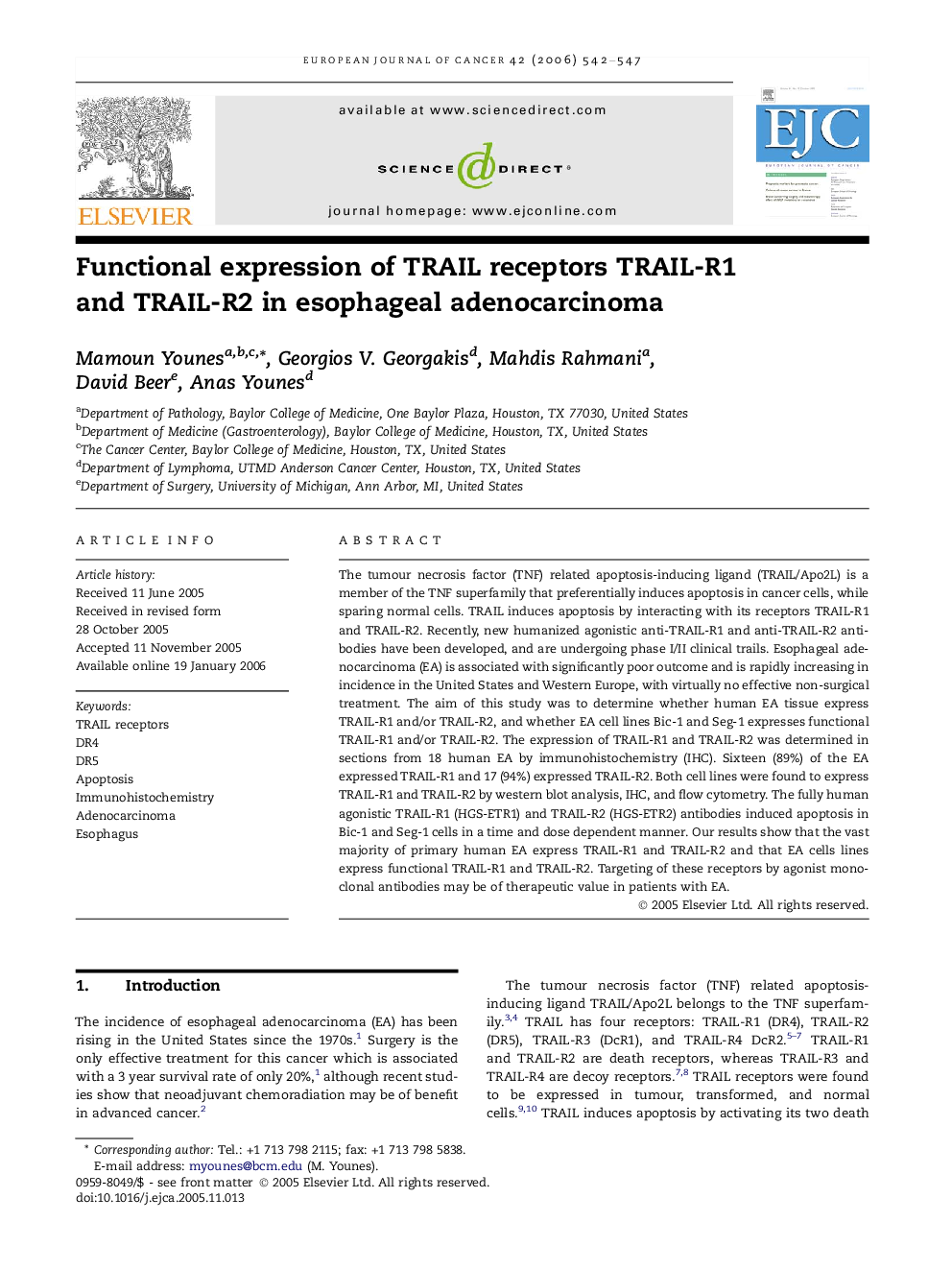| Article ID | Journal | Published Year | Pages | File Type |
|---|---|---|---|---|
| 2124946 | European Journal of Cancer | 2006 | 6 Pages |
Abstract
The tumour necrosis factor (TNF) related apoptosis-inducing ligand (TRAIL/Apo2L) is a member of the TNF superfamily that preferentially induces apoptosis in cancer cells, while sparing normal cells. TRAIL induces apoptosis by interacting with its receptors TRAIL-R1 and TRAIL-R2. Recently, new humanized agonistic anti-TRAIL-R1 and anti-TRAIL-R2 antibodies have been developed, and are undergoing phase I/II clinical trails. Esophageal adenocarcinoma (EA) is associated with significantly poor outcome and is rapidly increasing in incidence in the United States and Western Europe, with virtually no effective non-surgical treatment. The aim of this study was to determine whether human EA tissue express TRAIL-R1 and/or TRAIL-R2, and whether EA cell lines Bic-1 and Seg-1 expresses functional TRAIL-R1 and/or TRAIL-R2. The expression of TRAIL-R1 and TRAIL-R2 was determined in sections from 18 human EA by immunohistochemistry (IHC). Sixteen (89%) of the EA expressed TRAIL-R1 and 17 (94%) expressed TRAIL-R2. Both cell lines were found to express TRAIL-R1 and TRAIL-R2 by western blot analysis, IHC, and flow cytometry. The fully human agonistic TRAIL-R1 (HGS-ETR1) and TRAIL-R2 (HGS-ETR2) antibodies induced apoptosis in Bic-1 and Seg-1 cells in a time and dose dependent manner. Our results show that the vast majority of primary human EA express TRAIL-R1 and TRAIL-R2 and that EA cells lines express functional TRAIL-R1 and TRAIL-R2. Targeting of these receptors by agonist monoclonal antibodies may be of therapeutic value in patients with EA.
Related Topics
Life Sciences
Biochemistry, Genetics and Molecular Biology
Cancer Research
Authors
Mamoun Younes, Georgios V. Georgakis, Mahdis Rahmani, David Beer, Anas Younes,
